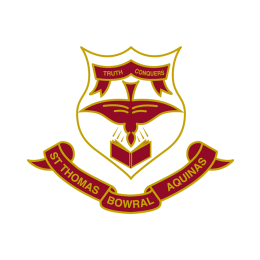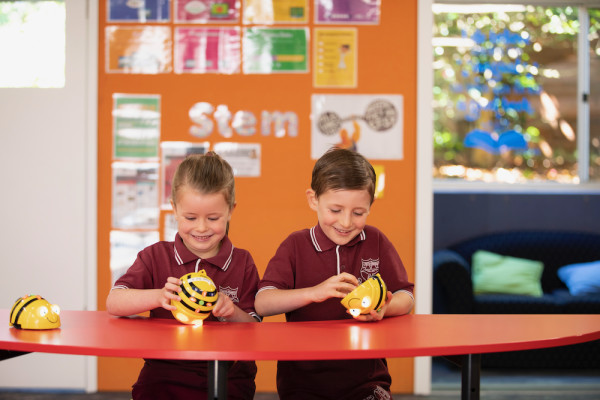
St Thomas Aquinas Bowral
A Catholic Parish Primary School
 At St Thomas Aquinas, we aim to cater for all students’ strengths and interests, and bring out the best in each individual. This is done in many areas and with a variety of learning experiences.
At St Thomas Aquinas, we aim to cater for all students’ strengths and interests, and bring out the best in each individual. This is done in many areas and with a variety of learning experiences.
Working collaboratively with parents/carers, teachers, Catholic Education Diocese of Wollongong and the community, we aim to respond to students’ diversity and endeavour to cater for every student’s strengths, aspirations and challenges.
Learners have diverse needs and come from diverse backgrounds, cultures and contexts including:
From time to time, students present with diverse needs and the teacher provides comprehensive support within the classroom, and where needed may seek further support from the school, Catholic Education Diocese of Wollongong and outside agencies.
Adjustments may be made to learning and teaching experiences for students to better access the curriculum at their level. Recommendations may be made by the School Case Collaboration Team to seek professional assessment for a particular child.
Other suggestions may include the referral of a student to a paediatrician, speech pathologist, occupational therapist, audiologist, optometrist, psychologist or counsellor. As a result of this testing, additional funding may be made available to support the needs of the child.
All funded students have an Individual Student Plan (ISP) developed collaboratively with parents and regular meetings are held with parents to discuss progress and concerns. These plans aim to ensure that all students can engage in school life and learning on the same basis as their peers.
The intervention programs provided at St Thomas Aquinas are all grounded in scientific evidence-based best practice. We offer several interventions which are a part of MultiLit – a leading intervention program in providing effective literacy instruction in Australasia.
A research initiative of Macquarie University, MultiLit’s publications, professional development and Literacy Centre are continually informed by an ongoing program of research, led by Emeritus Professor Kevin Wheldall AM. Our robust and successful literacy intervention program targets students at all year levels and is led by both Diverse Learning Needs Teachers and School Support Officers.
PreLit is a systematic, skills-based intervention used in Kindergarten focusing on phonological awareness skills, oral blending and oral segmentation of words. Various activities are presented in a game format and lessons are cumulative with students progressing at their pace and developmental level. PreLit is conducted in small group situations.
MiniLit is an evidence-based, explicit and effective early literacy intervention program for teaching reading skills to identified students in Year 1 and Year 2. It is generally conducted in small groups, however, it can be taught individually if necessary.
MacqLit is an evidence-based, systematic and explicit intervention program for identified students in Year 3 and above. It includes all key components for effective reading instruction: phonemic awareness, phonics, fluency, vocabulary and comprehension. The primary focus of MacqLit is on phonics and word identification but it is supported by the reading of connected text to allow for students to put the skills and strategies into action. It is generally conducted in small groups, however it can be taught individually if necessary.
The Reading Tutor Program is a one-to-one program for identified students in Year 3 and beyond. It incorporates intensive, systematic and explicit instruction in phonics and word attack skills, sight word recognition and supported book reading.
Year 3 students participate in the ACER General Ability Tests (AGAT) - a test of general intellectual ability designed to assist teachers in their assessment of students’ learning potential and aptitude. Teachers devise specific Individual Plans for students who have been formally identified as gifted.
In addition to enrichment at the class level, a diocesan initiative to identify students working above their stage level is launched at the beginning of each year. This culminates during Term 4 in the showcasing of exceptional student work in a high-quality and beautifully produced book and online publication.
The students that are selected to participate in this program have been identified through the AGAT and Slosson Test and through teacher referral. These students will have demonstrated outstanding levels of achievement, not only in formal testing, but as a result of talents, abilities and behaviours that have been identified by their teachers.
These include:
SPLICED (Stretching Potential through Learning in Interactive and Challenging Environments in the Diocese) is a program in which students are given the opportunity to deepen their knowledge and understanding by thinking imaginatively, creatively and critically in response to a concept-based unit. Whilst there is some mentoring by teachers and tutors throughout the year, the expectation is that these students will be motivated to self-direct their own unique learning process in which some, or many, of the above traits will be demonstrated. Time is allocated to SPLICED during class time.
For more information, view our CEDoW Diverse Learning Needs Policy